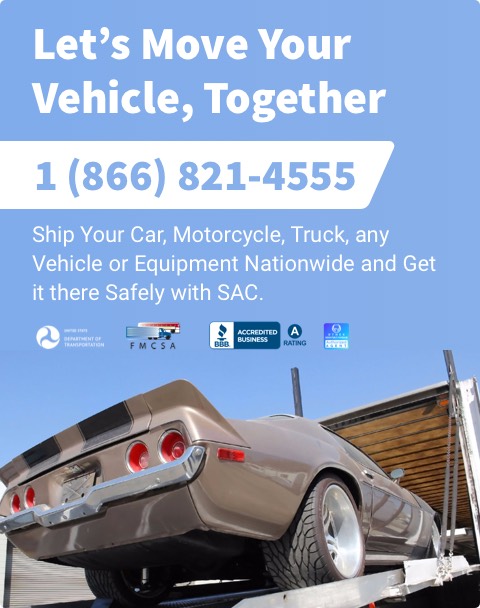For automobile parts suppliers in the United States, the switch from internal combustion engines (ICE) to electric vehicles (EVs) brings both considerable obstacles and possibilities. Suppliers are anxious since EVs do not require many conventional vehicle parts. Government funds, for example, are assisting these vendors in innovating and adapting, nevertheless. Diversification opportunities include remanufacturing and creating cutting-edge EV systems. Supporting these suppliers as they adapt to the changing automotive landscape is imperative for the industry.
In-depth discussion of the FMCSA’s recent decision to raise UCR costs by 25% for 2025 is provided in this blog article, along with its effects on the transportation sector, the background of charge increases, industry responses, and how these changes may influence regulatory environments in the future. Find out why Ship A Car, Inc. is still the best option for all of your shipping requirements.
Over 211,000 Chrysler cars have been recalled because of a software problem that could disable critical safety measures. Some variants of the 2022 Dodge Durango and Ram 2500 and 3500 are affected. The dealers will fix this for free. For dependable car transportation throughout this recall, get in touch with BBB-accredited Ship A Car, Inc.
The state of Virginia has decided to abandon the electric car rules that have been implemented in California and instead adopt federal standards. A greater assertion of state independence and regulatory autonomy is reflected in this trend, which places a higher priority on economic practicability and personal preference among consumers.

This blog article explores the recently released fuel efficiency criteria for 2027–2031 by the USDOT, highlighting the anticipated advantages in terms of lower emissions, more fuel economy, and more energy security. It discusses the financial benefits, compliance tactics based on technology, and the involvement of several stakeholders in creating these significant standards.
With improved security features, the FMCSA is updating its registration system to combat fraud in the commercial motor vehicle sector. This blog examines the actions made, the goals for the future, and the expected advantages of these adjustments.
The careful planning of “super load” shipments by Ohio for Intel’s new plant exemplifies a challenging logistical undertaking. This blog examines the difficulties and tactics involved in overseeing such extensive shipments, with a focus on community effect, safety, and hopes for the future.
The proposed speed alert law in California would completely transform auto safety in the United States by requiring new automobiles to include speed warning systems. This law may be adopted nationally, following the lead of global norms in the European Union.

Class 8 trucks fall short of safety regulations even though airbags in passenger cars have been shown to be effective. In order to safeguard drivers throughout the country, Gemini Motor Transport is a prime example of proactive safety measures. It has pushed for government legislation to standardize airbag technology in trucks.
In order to maintain stringent drug testing policies and guarantee road safety, the possible rescheduling of marijuana raises serious concerns among the trucking industry in the United States. In order to avoid impaired driving, industry leaders advocate for ongoing testing procedures in the face of changing cultural and legal environments.
In the US auto shipping market, electric trailers are raising the bar. They provide a viable substitute for conventional ways, paving the way for a more eco-friendly and efficient future with their zero emissions, cost savings, and sophisticated safety measures.
Find out how Isuzu Motors and Gatik are working together to create Level 4 autonomous trucks, which have the potential to completely change middle-mile logistics and solve the rising driver crisis.

This blog article explores the most recent rules from the FMCSA Drug & Alcohol Clearinghouse that have an impact on American commercial drivers. It describes the looming dangers for those in “prohibited” status as well as the actions required to comply via the Return-To-Duty procedure.
This article explores the FMCSA’s refusal of a Florida petition to modify CDL testing procedures, with a focus on safety and compliance with regulations. Stakeholder opinions are included, along with the decision’s wider effects on CDL candidates and traffic safety.
This blog article examines how FMCSA leadership, election cycles, and industry consultations have complicated U.S. trucking rules. The CSA program overhaul and speed limiter controversy are discussed. At Motive Vision 24, industry professionals stressed the changing nature of regulatory processes. ATA’s speed limitation attitude and universal implementation issues are reviewed.
